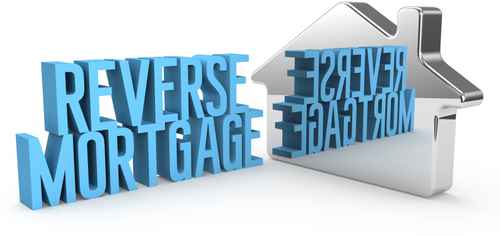According to the National Reverse Lenders Association, more than 1,149,663 U.S. households had utilized an FHA-insured reverse mortgage by Feb. 2020. The equity value of senior homeowners (age 62 and older) exceeded $7.19 trillion in 2019.

As the 74 million baby boomers enter retirement at a rate of 10,000 per day, the reverse mortgage marketplace is potentially worth $1.9 trillion according to the Consumer Financial Protection Bureau, of which only about 10% has been penetrated. While this mortgage product has been around since 1961, its effect on real estate markets is now reaching an influential point and will continue to going forward.
The pros, cons, and myths of reverse mortgages change regularly as new products and businesses enter the market. The reverse mortgage market needs monitoring just as the traditional mortgage market does.
A reverse mortgage can increase the monthly income of a person over the age of 62. If you are considering a reverse mortgage, the amount you are eligible to borrow is based on your age, the equity in your home, and the current interest rates.
Technically a reverse mortgage is known as a Home Equity Conversion Mortgage (HECM). To qualify for a HECM:
There are options for how you borrow the money. You can take one lump sum payment to pay off other loans so that your income goes further each month. Or you can have monthly installment payments sent to you as an additional source of income. Or you can establish a line of credit that you only draw on the credit when needed.
A Consumer Financial Protection Bureau report warns that waiting until a later age to take out a reverse mortgage (to increase Social Security benefits) is generally not a financially prudent decision. The cost of the loan will likely be more than the benefit gained.
Unlike conventional mortgages, you're not building equity in your home. You're doing exactly the opposite. You're borrowing against the equity in your home and not repaying the loan on a monthly basis. Interest on the loan accumulates each month. If you're receiving monthly installment payments, the principle on the loan grows each month. If you have a line of credit, the principle on the loan grows each time you access the line of credit. Don't forget the important aspect of compounding interest. Because you're not repaying the loan, each month the interest owed is added to the principle of the loan and more interest is owed the next month.
Fees, commissions, loan origination costs, and other costs tend to be extraordinarily high compared to traditional mortgages. By the time you subtract all of the fees and costs from the loan, you receive much less money than you borrowed. You need to shop around for a reverse mortgage.
Finally, you are not immune from losing your home to a reverse mortgage. Certainly, you are decreasing the amount of value your estate will leave for your heirs. Furthermore, if it becomes necessary for you to move into an assisted living facility or nursing home, your reverse mortgage becomes due in full one year after you no longer occupy the home. Same thing if you decide to move to a warmer climate, or a smaller home, or from a two-story to a one-story. When you move for any reason, your primary home has to be sold to repay the reverse mortgage plus all of the accumulated interest.
Myth #1. A reverse mortgage can leave you with an outstanding balance exceeding the value of the home.
Truth. While this is partially true, the balance owed may exceed the value of the home, this is a nonrecourse loan. You're not required to repay any balance exceeding the sale value.
Myth #2. People still owing on a traditional mortgage can't qualify for a reverse mortgage.
Truth. You can't have both a traditional mortgage and a reverse mortgage. However, you can use the proceeds of a reverse mortgage to pay off the balance of a traditional mortgage. That means you don't have to make the traditional mortgage payment going forward. And payments on the reverse mortgage are deferred until you vacate the house. If you have enough equity, you can pocket the remaining balance after paying off the traditional loan (but first you have to pay the fees and costs that come with the reverse mortgage).
Myth #3. A reverse mortgage can result in you being evicted from your home.
Truth. You cannot be evicted from your home to repay a reverse mortgage. However, events out of your direct control can cause you to have a different primary residence that triggers the requirement that you sell your home to repay the reverse mortgage against it.
Reverse mortgages will continue growing in popularity as our society ages. The rules will change and those offering the service will become more innovative. New regulations will come along as the lenders stack the cards in their favor. You may want to check out: Reverse Mortgages: a discussion guide from the Consumer Financial Protection Bureau (CFPB) Office for Older Americans.
What tips can you offer for people considering a reverse mortgage? Please leave a comment.
Also, our weekly Ask Brian column welcomes questions from readers of all experience levels with residential real estate. Please email your questions, inquiries, or article ideas to [email protected].